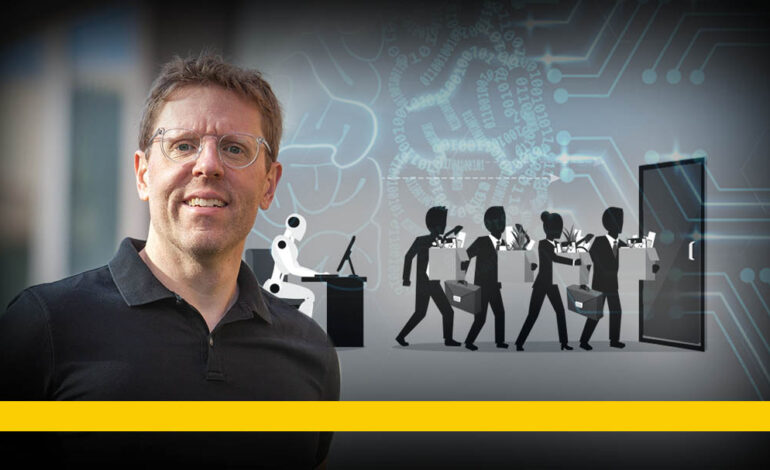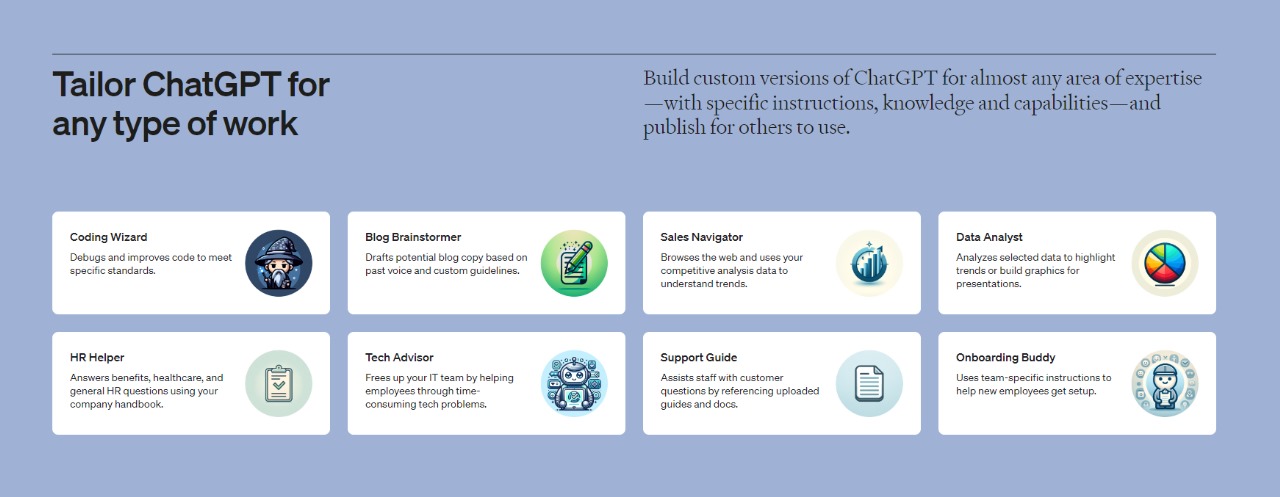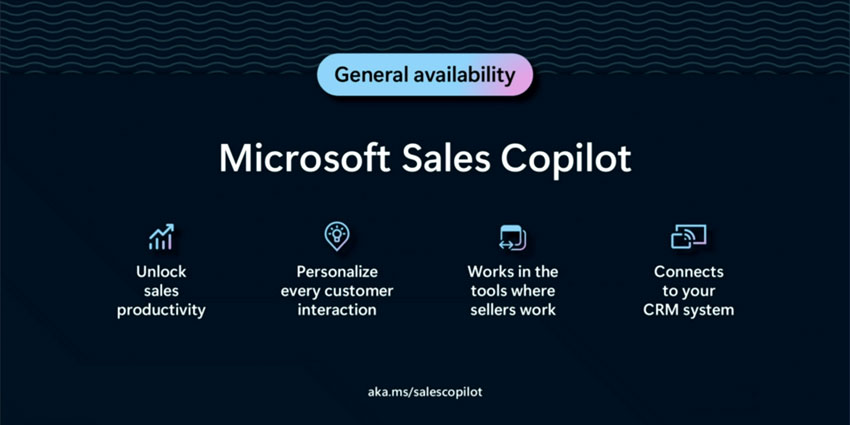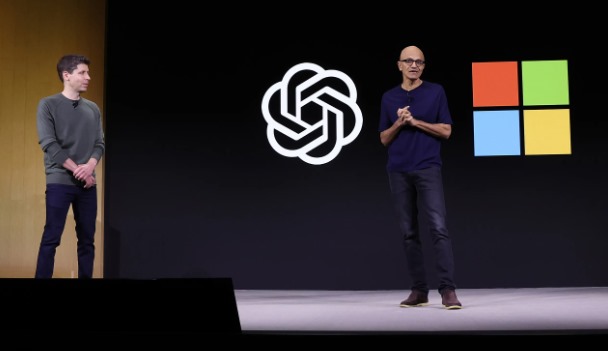‘AI’s Impact and Economic Limits to Job Automation’

How far and how fast will AI and its applications impact employment opportunities and the larger economy? Innovation scholar Neil Thompson, who is also the Director of FutureTech Project at Massachusetts Institute of Technology, (MIT), USA has done extensive research on this. Akriti Puri, Assistant Producer with PTI-Videos, New Delhi, talked to him at length on these and other related questions in an online PTI Exclusive video interview. Along with the transcript as well as a gist of the interview. Read on.
Akriti Puri of PTI in conversation with Neil Thompson, Director of FutureTech Project at Massachusetts Institute of Technology (MIT), USA. Thompson is associated with MIT’s Computer Science and AI Lab.
A Summary of the Conversation
Neil Thompson, an innovation scholar and the director of the future tech research project at has cited the high cost for developing accuracy in gen-AI as the major reason for AI not replacing 100% jobs any sooner. MIT’S CSAIL in its recent research paper has examined that currently only 23% of jobs involving visions will be replaced by AI as more than that won’t be economically viable. Thompson was one of the authors of the paper.
In an interview to PTI, Thompson iterated that in order to bring accuracy to an AI model, one will need to invest a lot more than expected which won’t be “economically attractive”. So, what makes it less attractive to build the system is that we’ll need very very high accuracy. And that’s because building an AI system gets much much more expensive as you try to take the level of performance high. And so, building a system that is 70% or 90% accurate might cost you thousands of times more,” he noted.

However, he did mention that the AI automation could gradually increase going forward and could become economically feasible while laying down the fact that we have already started to see AI-automated tasks adopted by large-valued tech firms. Thompson further anticipated an emergence of AI as a service platform, reiterating his research where he had underlined that “development, deployment, and running costs might decline and the technology industry could transform to provide AI solutions as a service.” With the thriving AI startup culture, we are also getting to see a jump in more number of human resources in its R&D segment.
To this, Thompson acknowledged the requirement of hiring expert labors to build the “foundation models” of AI where he also projected a competition among human workers going forward. He further anticipated a job decrease as well as an increase when it comes to displacements citing that AI tools like CoPilot and ChatGPT will only augment what we can do as coders. “That’s going to make coders more efficient and productive so in some way, we’ll see an expansion and more code,” he said. In another case, when people ask why we need this amount of code when I can do it with lesser number. So, there’s job increase as well as job decrease at the same time, Thompson added.
Full transcript of the interview:
So first of all Neil, despite generative AI taking over our everyday life gradually, few people are still resisting this change, while some would compare this revolution with the time when World Wide Web was introduced, the difference that I’d like to lay down is that people accepted the internet and didn’t see it as a threat unlike AI. What’s your opinion on that?
NEIL: So, I think with the internet, and with generative AI and the other forms of AI that are around today. I think we should both see it as the opportunity and the threat. That’s because as with a lot of technological change, as our tools get more powerful, they allow us to do more things. And so those things can be good or bad, and of course, they can also be displacing. And so, as we try to address this, and a question that we should try to understand is how much job replacement, especially task replacement of what humans are currently doing, would actually happen with generative AI. But I think it is important to remember that both of these things are happening at once. As the tools are getting more powerful, we get this ability to become more productive, that makes our society better. But there’s also this threat of displacement that we need to worry about.

Q: In your recent report on “Rethinking AI’s impact and economic limits to job automation”, you mentioned that only about 23 percent of jobs involving “vision” can be replaced by AI? Can you explain a bit more as to why it won’t be economically viable to replace human labour completely?
NEIL: So we should start by saying that if we think about all sorts of tasks that humans do, in some of those tasks right now we would say that the AI systems that are being built, there’s a possibility that they might be used to automate the human tasks. And so this is often called AI exposure and so you might say for example, well if we look at the stuff that humans do with their visions, when we look at things in the real world, we might say computers are getting increasingly good at using vision to do things. And so we would ask well, can computer vision replace humans doing those tasks? So, there’s a first part that says, of all the things we do, this portion can potentially be done by these new AI systems.

While there’s other things, for example, in some of the physical things that we do, its pretty a long time before we can imagine the systems being automated. But even within the things that AI can do already, we’ll say well okay its fine to say we could build an AI system that could do this task. But the key question is, do you want to? is it economically attractive to do that? And if its incredibly expensive, if its much more expensive than using humans then you really wouldn’t want to do that. And that’s what our study explored and what we found was that for three-quarters of the tasks where computer vision might be used, are the tasks which you wouldn’t want to do it. Now what we should expect is as the system gets cheaper and as we find ways to deploy it more broadly so that the costs can be spread over more things it should become more attractive and so in paper we talk a little bit about that process. And we should expect an increase but what we see is that even with quite rapid increase in the improvement in costs and things like that, it will still take decades for the system to ultimately replace a lot of things that humans are doing.”
Q: Neil, when you said “jobs involving visions”, what kind of jobs exactly were exceptional to your point? And in what kind of jobs the threat still remains?
NEIL: Its important to know that the distinction between what gets automated and what doesn’t gets automated isn’t just on the task level but it also depends on where you are. But there are also other things which you can say that make things more or less attractive. So what makes it less attractive to build the system is that we’ll need very very high accuracy. And that’s because building an AI system gets much much more expensive as you try to take the level of performance high. And so building a system that is 70% or 90% accurate might cost you thousands of times more. The reason that it is important is some tasks where you want really good performance….”

Q: So you mean acquiring soft skills will keep us at a safer side than acquiring tech skills?
NEIL: I don’t think we can have quite broad characterization as such. The particularly interesting thing about generative AI is that its able to do a bunch of things that we think of as soft skills like changing the tone of expressing something, or interacting. Some of those things have got much better. But you still have the “accuracy” that you have to take into account…..”
Q: Do you think this economic viability regarding AI that exists currently will continue in future?NEIL: So, what we expect to see is that we have this initial push. So already we can see that a quarter of these tasks that AI could potentially do, are already economically attractive. So initially we will see a bunch of tasks starting to be automated particularly by big companies or companies that have a lot of value. And then we can expect a sort of a gradual rollout as the systems get cheaper, as people build platforms so that we can use the same technology not in one firm but in many firms. All of these things will promote the ability of these systems to be used across more things and therefore will increase the amount of automation we see from AI.”
Q: You have mentioned in your research paper about the emergence of AI-as-service platforms and that there will be new business models around AI services. Do you see something as such happening any sooner, given the economic considerations that we are talking about?
NEIL: “So we definitely see the emergence of AI as the service platforms happening very quickly…..But I think the speed will be gated by the fact that as the system develops it takes a while to get them…..”

Q: With the thriving AI start-up culture lately, we have been noticing a jump in the recruitment of human labour mostly in the research segment. What do you have to say on that?
NEIL: “So I think that makes a lot of sense that we are seeing that and I think the real reason is that if you think about building these systems, you have often very large AI system, the basis which some might call as the foundation models, and these might be models developed by Google or OpenAI or somebody like that. But then it takes a lot of work to adapt it to the particular circumstances that people would care about. And so, I think we’re often going to have to go get expert labour in order to do that because we’ll be in that initial moment where about a quarter of these tasks are now economically feasible to do because of the technological advancements that we’ve had. We definitely expect there to be a lot of competition among human labour to do these things initially and that expertise will certainly be used to build these initial systems as it starts to get spread through the economy.”
Q: We have been seeing Google and other tech giants laying off large numbers of employees and mostly to replace human resources with Generative AI. What skills do you think the employees who are not being laid off inherit? Is it in some way related to qualitative performance?
NEIL: I don’t know exactly why the tech companies are laying off their employees. One of the impressions I get is that this is more of a change of focus….But indeed I think one important aspect that is going on here is that as these tools get better, the humans doing the job also get better themselves. So there’s obviously this tension…So in programming skills, one of the things that we expect is that CoPilot and ChatGPT can augment what we can do as coders. That’s going to make coders more efficient and productive so in some way we’ll see an expansion and more code. In another case, when people ask why we need this amount of code when I can do it with a lesser number. So there’s job increase as well as job decrease at the same time.”

Q: One question that I have been stressing on lately in all of my interviews is if AI as a substitute to humans will also reduce wages among employees? What’s your view on that?
NEIL: So, I think whether AI decreases the wages or not will depend on a lot of factors which end up in a little complicated way. Here’s what I mean by that, for some people its clearly going to be a situation where they were doing something that gets automated and maybe they don’t have a lot other skills so that means that they have been taken from a job where they had some expertise into an area where they don’t have expertise. And therefore, their wages are likely to go down and I think we’re going to see a lot of such cases. But for other people, it might automate some of what they were doing that was not really what they were focusing on, right? So you might say that its actually taken away some parts of my job that were really painful but I still had to do and it let me focus on things that are more valuable. And so in those cases you’re expected to raise wages because it has made people more productive. And so I think again we’ll see both of these things happening at the same time. And so one of the key questions that I think workers need to be thinking about is if the job that they have expertise in is going to get replaced…”
Click here to watch the full video interview.
To receive updates on detailed analysis and in-depth interviews from The AIDEM, join our WhatsApp group. Click Here. To subscribe to us on YouTube, Click Here.












Thank you Akriti and Aidem .. This is very useful . A good follow up your series on cryptocurrency related issues . Please continue to post such informative titles .